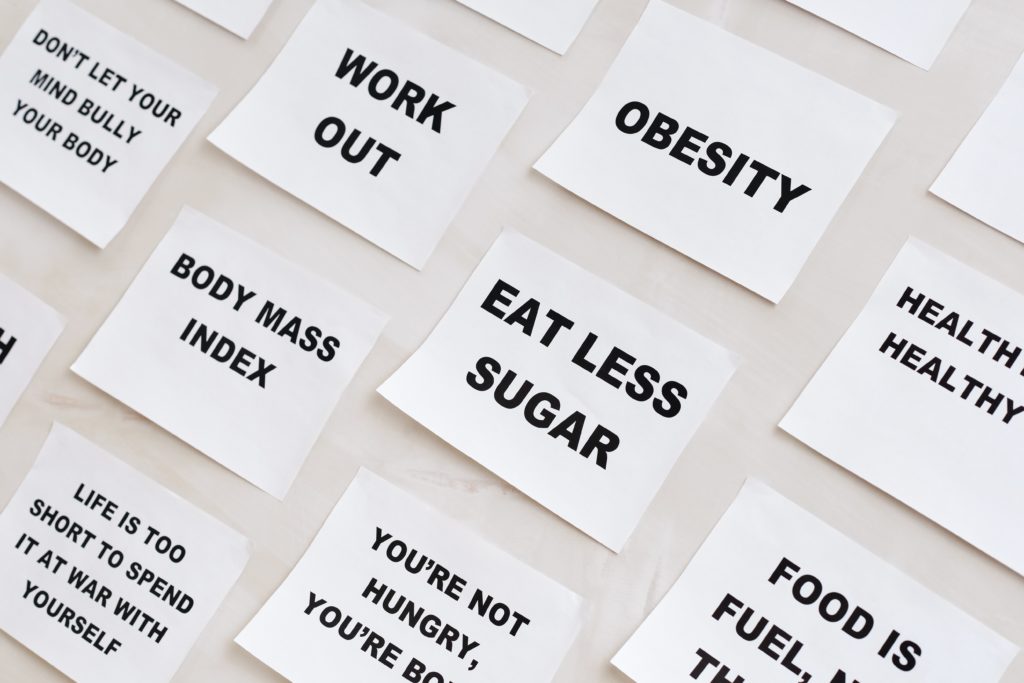Eating Habits And How To Improve Them
Eating habits refer to the ways in which individuals consume and utilize food and drink. These habits can have a significant impact on a person’s overall health and well-being. Poor eating habits can lead to weight gain, nutrient deficiencies, and a higher risk for certain health conditions such as heart disease, diabetes, and certain types of cancer. On the other hand, good eating habits can help maintain a healthy weight, provide the body with essential nutrients, and reduce the risk of developing certain health conditions.

The Results of Good Eating Habits
There are many benefits to having good eating habits. Some of the most notable include:
- Weight management: Eating a healthy and balanced diet can help you maintain a healthy weight or lose weight if you are overweight.
- Improved physical health: Good eating habits can help reduce the risk of developing chronic conditions such as heart disease, diabetes, and certain cancers.
- Improved mental health: Proper nutrition can also have a positive impact on your mental health, including reducing the risk of depression and anxiety.
- Increased energy levels: Eating a varied and nutritious diet can give you the energy you need to stay active and productive throughout the day.
- Improved brain function: Certain nutrients found in a healthy diet, such as omega-3 fatty acids and B vitamins, have been linked to improved brain function, including better memory and concentration.
The Results of Poor Eating Habits
Poor eating habits can have a range of negative effects on your health. Some potential consequences of poor nutrition include:
- Weight gain: Consuming too many calories, particularly from unhealthy sources such as fast food, processed snacks, and sugary drinks, can lead to weight gain and obesity.
- Chronic diseases: Poor eating habits can increase your risk of developing chronic conditions such as heart disease, type 2 diabetes, and certain types of cancer.
- Nutrient deficiencies: If you’re not getting a variety of nutrients from your diet, you may be at risk of deficiencies. This can lead to a range of health problems, including anemia, weakness, and poor immune function.
- Poor mental health: Research has shown that there may be a link between diet and mental health. Poor eating habits may contribute to conditions such as depression and anxiety.
- Poor physical performance: Poor nutrition can also affect your physical performance. For example, if you’re not getting enough carbohydrates, you may feel tired and have low energy levels during exercise.
- Poor dental health: A diet high in sugar and processed foods can increase your risk of tooth decay and gum disease.

It’s important to remember that the consequences of poor eating habits can be serious, but they can also be reversed or improved with a healthy diet and lifestyle changes.
Ways To Improve Your Eating Habits
There are many ways to improve eating habits. Here are some tips to get started:
- Plan ahead: Planning meals and snacks in advance can help prevent impulse eating and ensure that you have healthy options available. Consider packing a lunch for work or school, or preparing meals and snacks in advance to have on hand when you are short on time.
- Make healthy choices: Choose foods that are nutrient-dense and low in added sugars, sodium, and unhealthy fats. Focus on incorporating plenty of fruits, vegetables, whole grains, lean proteins, and healthy fats into your diet.
- Eat a variety of foods: Aim to eat a wide range of foods to ensure that you are getting all the nutrients your body needs. Don’t be afraid to try new foods or flavors – expanding your palate can lead to a more enjoyable and varied diet.
- Portion control: Pay attention to portion sizes to ensure that you are not consuming more calories than your body needs. Use measuring cups and spoons, or try using smaller plates to help control portion sizes.
- Eat slowly: Take the time to enjoy your meals and pay attention to hunger and fullness cues. Eating slowly can help you feel more satisfied with smaller portions and may also help reduce the risk of overeating.
- Stay hydrated: Drink plenty of water throughout the day to help keep your body hydrated and functioning properly. Water can also help fill you up, making you feel more satisfied after meals.
- Avoid distractions: Try to eat in a calm and peaceful environment, free from distractions such as television or phone screens. This can help you focus on your food and pay attention to your hunger and fullness cues.
- Get enough sleep: Adequate sleep is important for overall health and well-being. Lack of sleep can lead to increased appetite and cravings for unhealthy foods. Aim for 7-9 hours of sleep per night.
- Seek support: If you are struggling to improve your eating habits, consider seeking support from a healthcare professional or a registered dietitian. They can provide guidance and support to help you make lasting changes to your diet and improve your overall health.

Improving your eating habits may take some time and effort, but the benefits are well worth it. By making healthy choices and paying attention to portion sizes, you can improve your overall health and well-being.
Developing and improving your eating habits is an important step towards maintaining a healthy lifestyle. Here are some tips to help you get started:
- Make a plan: Decide what healthy habits you want to adopt, such as eating more fruits and vegetables or cutting back on sugar and unhealthy fats.
- Keep a food diary: Write down everything you eat and drink for a few days. This can help you identify any unhealthy eating patterns and make changes.
- Eat slowly and mindfully: Take your time to chew your food and pay attention to the flavors and textures. This can help you enjoy your food more and avoid overeating.
- Don’t skip meals: Skipping meals can lead to unhealthy snacking and overeating later on. Try to eat regular, balanced meals to keep your energy levels stable.
- Keep healthy snacks on hand: Having healthy snacks available can help you avoid reaching for unhealthy options when you get hungry. Some good choices include fruits, nuts, and low-fat cheese.
- Drink plenty of water: Staying hydrated is important for overall health. Aim for at least 8 cups of water per day.

Remember, it takes time to develop new habits, so be patient with yourself. If you slip up, don’t get discouraged – just try again. With practice, you can establish healthy eating habits that will benefit you for a lifetime.